
Healthcare Facility Murals
Enhance Patient Well-Being in your Hospital or Practice
The integration of mural artworks in healthcare facilities sets an instant tone for well-being that will put you ahead of your competition. Our research from 16 years of private art commissions has shown that people relate to these 5 international themes: water, nature, light, love and travel. Scientific studies prove that murals that relate to people by featuring the elements of art, beauty, and nature, have been associated with various scientifically proven health and healing benefits. While individual responses may vary, here are some common positive effects supported by research:
Stress Reduction: Numerous studies have demonstrated that exposure to nature-based art, including murals depicting natural scenes, can lead to a reduction in stress levels. Nature scenes, such as landscapes or images of water, have been found to have a calming effect on individuals.
Pain Reduction: Art in healthcare environments, including murals, has been linked to pain reduction. Patients exposed to aesthetically pleasing and nature-themed art have reported lower levels of pain and discomfort.
Improved Mood and Well-being: Murals featuring art, beauty, and nature can positively influence mood and overall well-being. This is often attributed to the psychological impact of aesthetically pleasing and uplifting images.
Distraction and Engagement: Art in healthcare settings, including murals, can serve as a positive distraction for patients, providing an engaging and mentally stimulating environment. This distraction may contribute to a more positive experience during medical treatments.
Enhanced Healing Environment: Studies suggest that a visually appealing and comforting environment can contribute to a sense of well-being and may enhance the overall healing process. Nature-inspired murals can contribute to creating a therapeutic and supportive atmosphere.
Reduced Anxiety: Exposure to art, particularly nature-themed art, has been associated with a reduction in anxiety levels among patients in healthcare settings. This can be particularly important in environments where patients may experience heightened stress and anxiety.
Promotion of Social Interaction: Art installations, including murals, can provide points of interest and conversation, promoting social interaction among patients, visitors, and healthcare staff. This social engagement can contribute to a more positive and supportive atmosphere.
Salutogenic, biophilic Kiln-fired Glass Mosaic Healthcare Murals
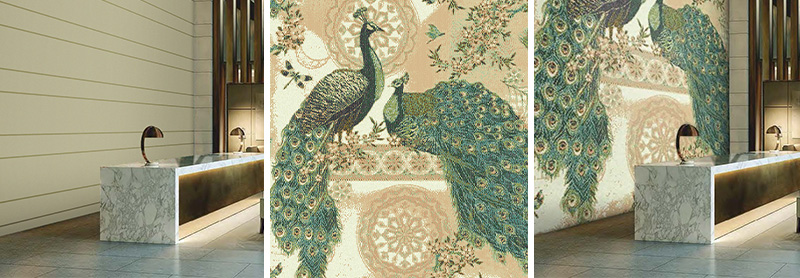
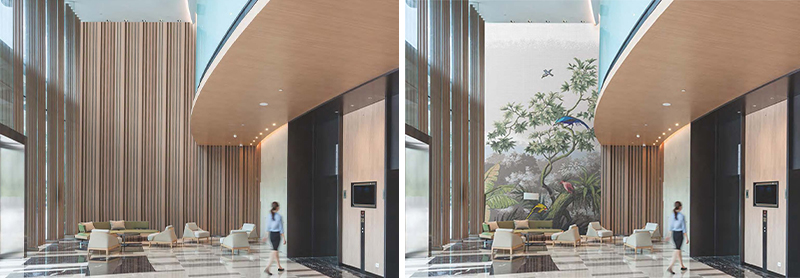
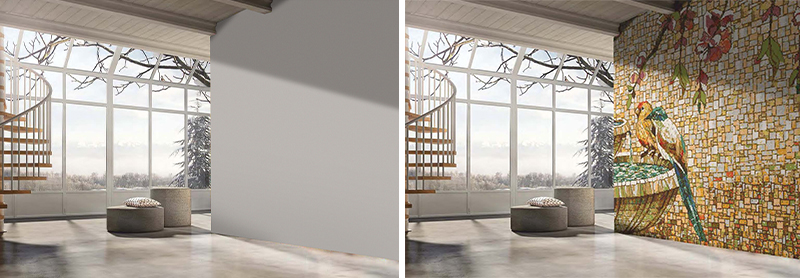
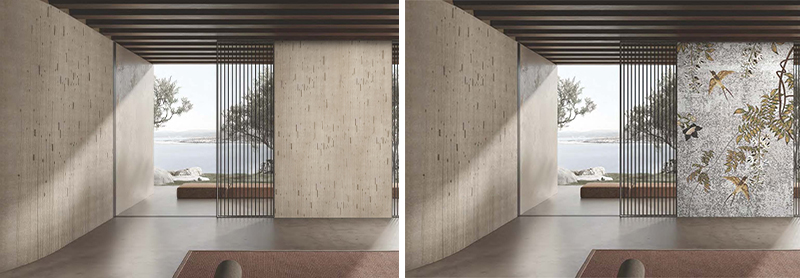
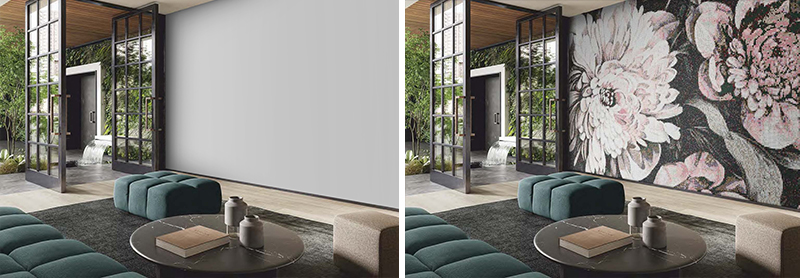
Custom glass mosaic tile murals will deliver incredible conversation pieces for wet and dry spaces, indoors and out. Mosaic tile art in 3 tile sizes of 6 types of glass textures are ideal for hospital and medical foyers, hallways, staircases, splashbacks, BBQs, bathrooms, lobbies, and lounge murals.
Captivatingly beautiful, glass as mosaic art creates beautiful smooth maintenance-free textures that will warm your hospital or medical space. All-natural Glass Mosaic is hypo-allergenic, impervious to chemicals and toxin free.
Tile Rugs to deinstitutionalize hospital design for staff and patient well-being
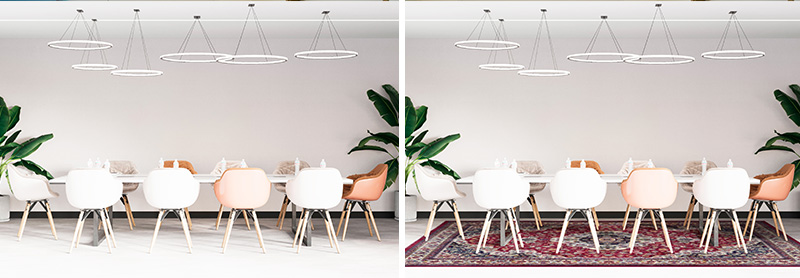

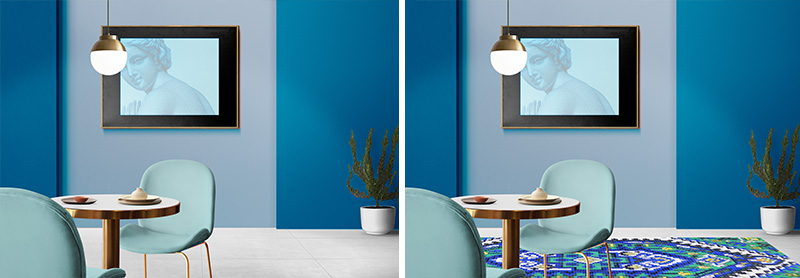
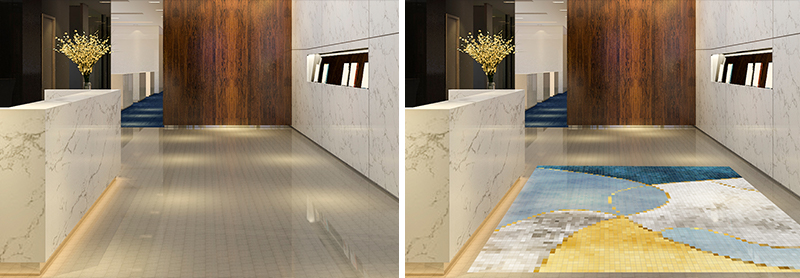
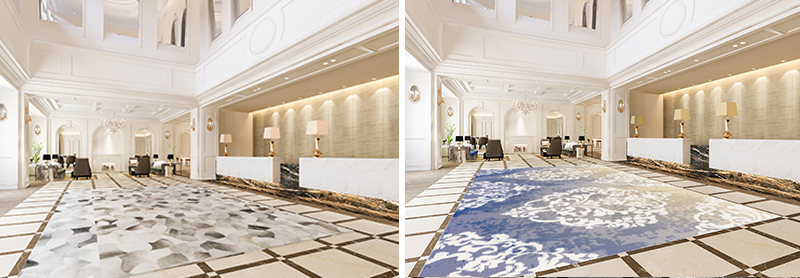
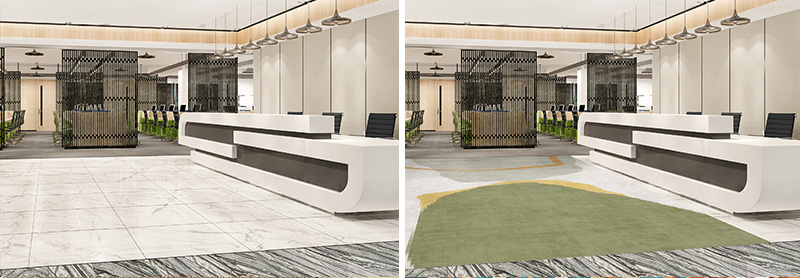
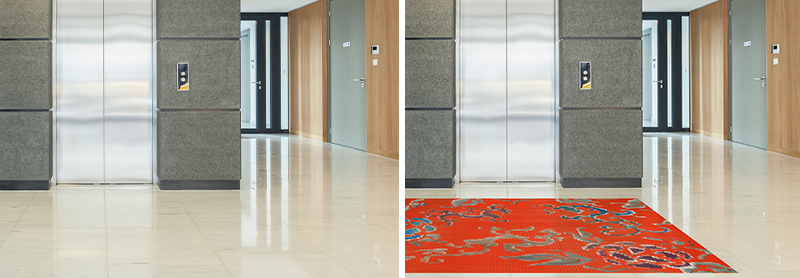
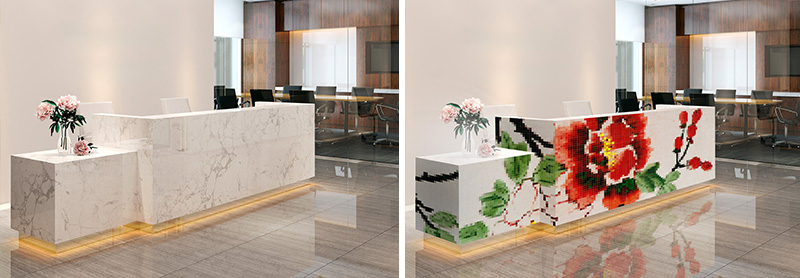
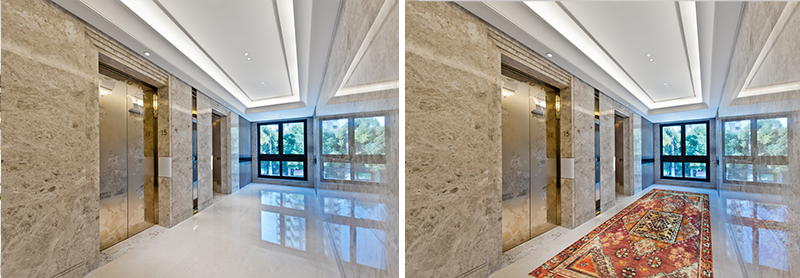
Also made from all-natural kiln-fired Glass Mosaic are our Tile Rugs. Now a trend overseas, Rugs from Tile creates non-trip, non-slip, hypoallergenic floor features. Instead of cold clinical flooring, Tile Rugs bring the warmth of texture, colour and style as a means of zoning areas and creating a sense of comfort.
Ceiling Murals that create a calming atmosphere



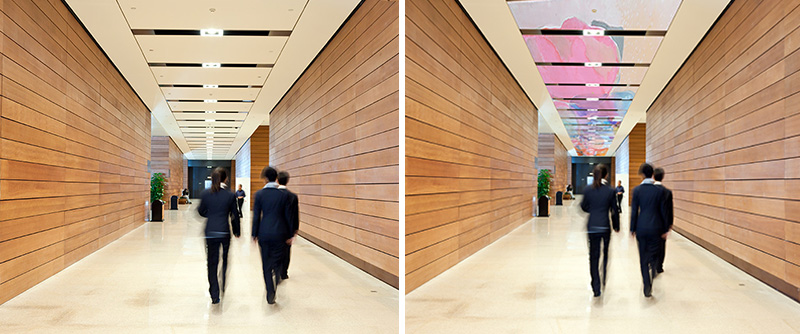
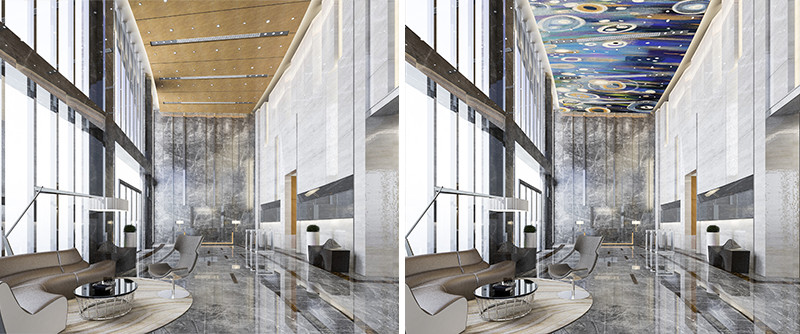
Ceiling murals in healthcare settings, such as hospitals and dental offices, can be strategically designed to provide a range of benefits, contributing to the overall well-being and comfort of patients. Here are several ways in which ceiling murals can be used to soothe people in healthcare environments:
Create a Calming Atmosphere: Ceiling murals featuring natural elements, such as skies, clouds, or landscapes, can create a calming and serene atmosphere. Nature-themed imagery has been shown to reduce stress and anxiety.
Artistic Elements: A well-designed ceiling mural can serve as a focal point in a room, drawing attention away from medical equipment and creating a positive focus for patients. This can contribute to a more pleasant overall experience.
Therapeutic Imagery: Incorporating therapeutic imagery, such as scenes associated with healing or positive emotions, can contribute to the overall healing environment of a healthcare facility. This may include images of growth, renewal, or scenes that evoke positive memories.
Reduce Perceived Wait Times: Visually appealing ceiling murals can help reduce the perceived wait times for patients. Time may seem to pass more quickly when individuals are engaged with interesting and soothing visuals.
Glass Murals for the Awe of Light Play

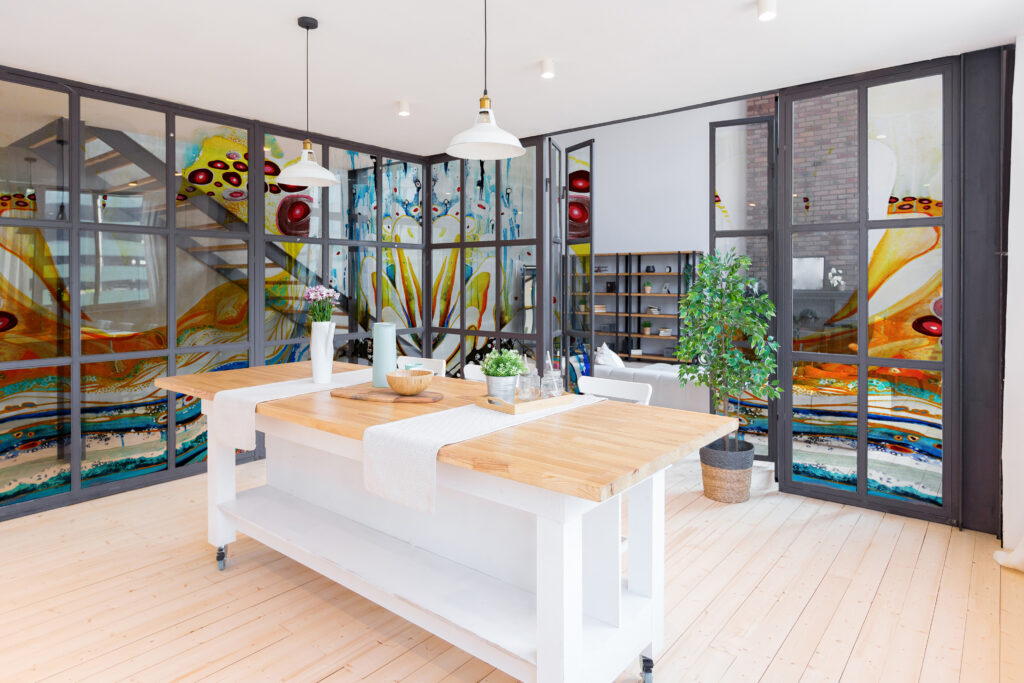

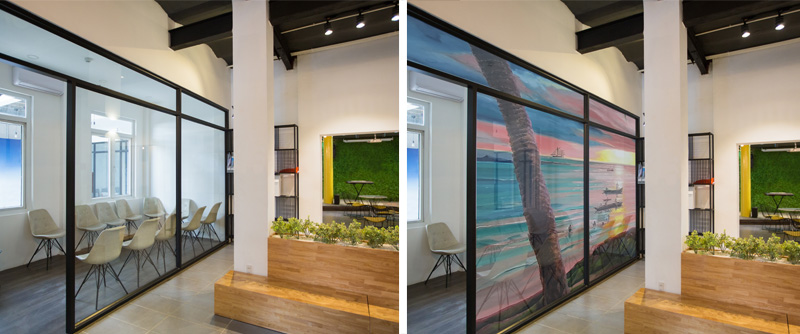
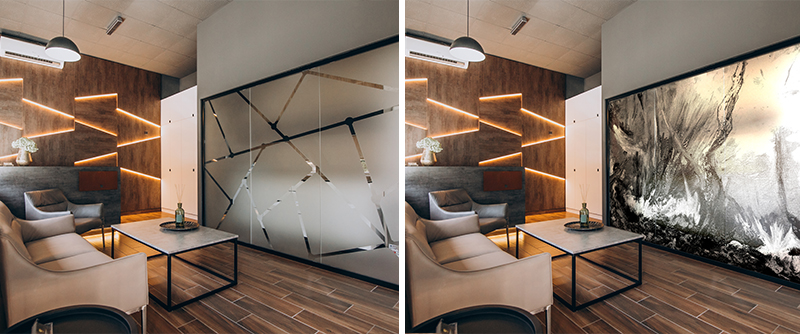
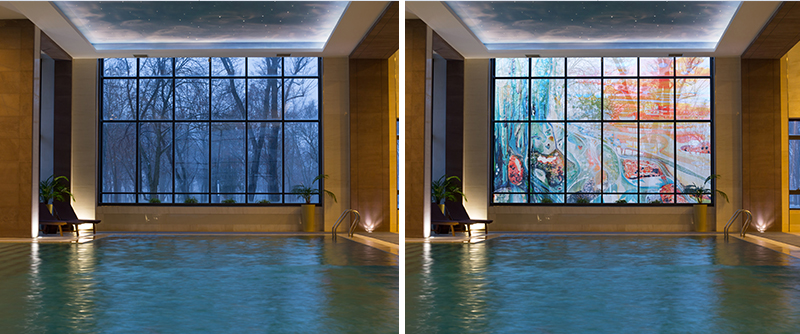
The appreciation of light through coloured glass is a subjective and multi-faceted experience influenced by various psychological, cultural, and physiological factors. Here are several reasons why humans may love looking at the light through colored glass:
Aesthetic Appeal: Colored glass often creates visually appealing and aesthetically pleasing effects. The interplay of light and colour can evoke positive emotions and contribute to a sense of beauty and harmony.
Mood Enhancement: Colors can have psychological effects on mood and emotions. Different colours are associated with various feelings and sensations. For example, warm colours like red and orange may elicit feelings of warmth and energy, while cool colours like blue and green may evoke calmness and tranquillity.
Artistic Expression: Colored glass is often used in art and design to convey artistic expression. Artists use colour to create depth, dimension, and emotion in their work, and coloured glass is a medium that allows for unique and vibrant artistic creations.
Cultural Significance: Colored glass can carry cultural and symbolic meanings. Specific colours may be associated with rituals, traditions, or spiritual practices in various cultures. The use of coloured glass in religious or ceremonial settings, for example, is often rich in symbolic significance.
Transcendent Experience: Colored glass can transform the quality of light passing through it, creating a mesmerizing play of colours. This interplay of light can provide a transcendent and captivating experience, captivating the viewer’s attention.
Therapeutic Effects: Some people believe in the therapeutic effects of coloured light, known as chromotherapy. It is a concept that suggests exposure to specific colours may have healing or balancing effects on the mind and body. Creating visually appealing and aesthetically pleasing effects. The interplay of light and colour can evoke positive emotions and contribute to a sense of beauty and harmony.
In summary: the love for looking at the light through coloured glass is likely a combination of the visual allure, emotional responses to colours, cultural influences, and the unique properties of coloured glass that create captivating visual effects. This appreciation is deeply rooted in the human fascination with aesthetics, artistic expression, and the interplay of light and colour.
Splashbacks for hospital cafes and kitchenettes
Reduce depression and quicken healing using the health benefits of daydreaming ‘over a cuppa’
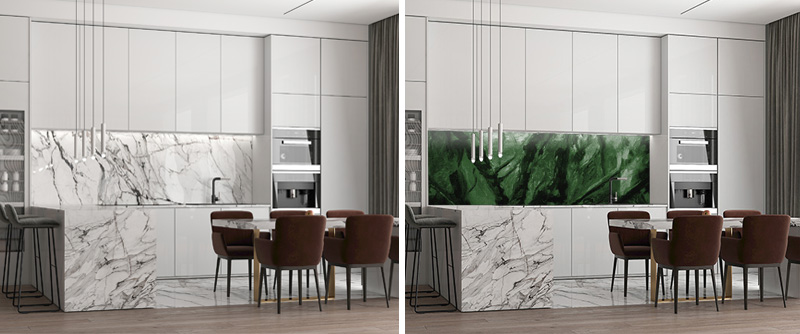

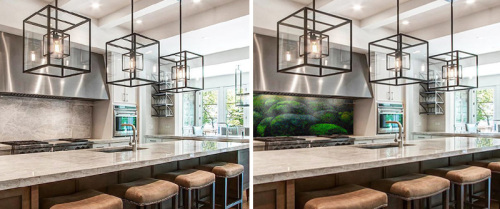
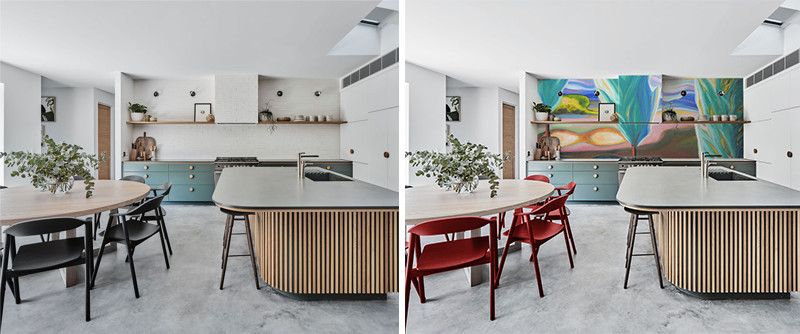
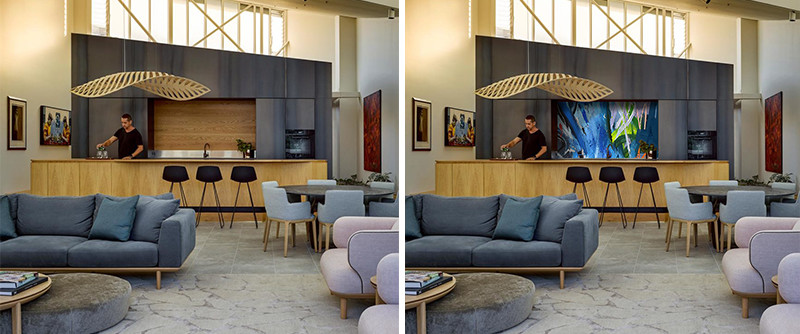
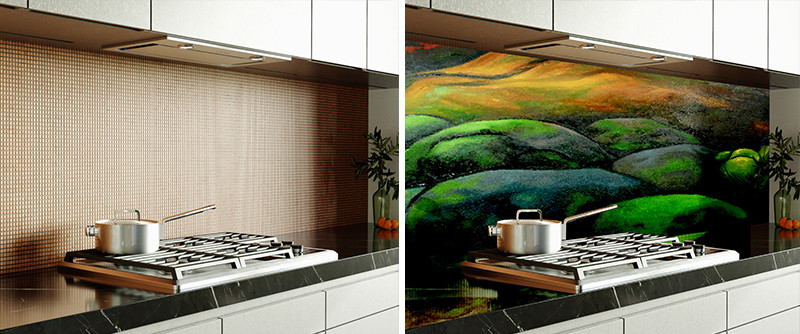
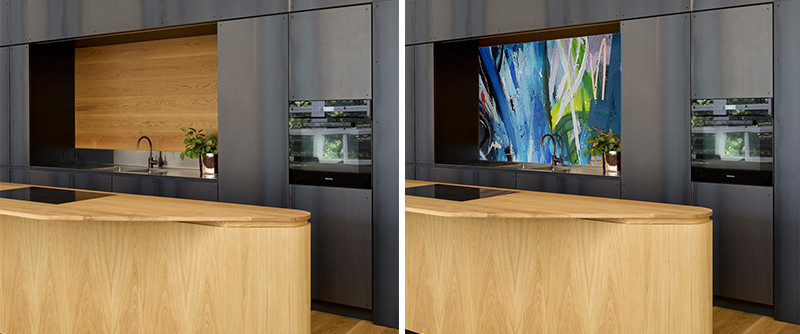
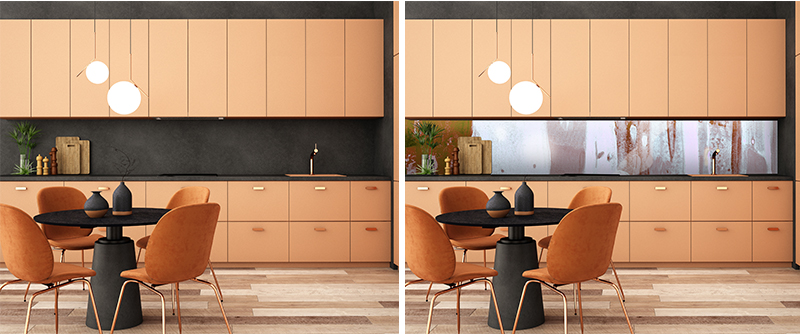

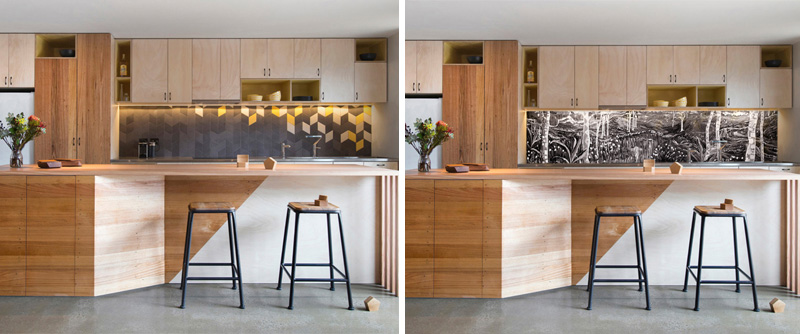
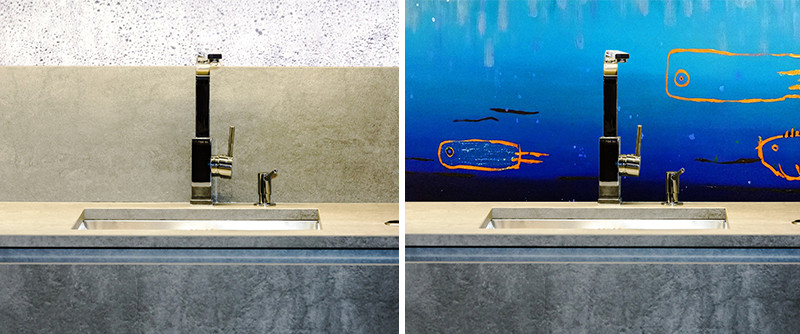
While specific scientific studies directly linking the three components of artwork, daydreaming, and coffee consumption in hospital settings may be limited, there is existing research on these related topics that do provide insights into the potential health benefits. Let’s break down the components of each:
Art and Health: Numerous studies have explored the health benefits of visual art, including reductions in stress, anxiety, and pain perception. A study published in the “Journal of the American Medical Association” found that exposure to visual art in a hospital setting was associated with improved mood and satisfaction among patients.
Daydreaming and cortisol: Mind-wandering or daydreaming has been linked to a decrease in cortisol levels, the hormone associated with stress. A study published in the journal “Frontiers in Psychology” suggested that spontaneous mind-wandering may help regulate cortisol levels
Coffee and serotonin: Coffee contains caffeine, which can stimulate the release of neurotransmitters, including serotonin. An article in “Psychopharmacology” discusses how caffeine intake can modulate serotonin levels in the brain. Serotonin, helps reduce depression
Relaxation and the Parasympathetic Nervous System: Engaging in activities like daydreaming, coupled with coffee consumption in a relaxed environment, can contribute to the activation of the parasympathetic nervous system. The parasympathetic system promotes a “rest and digest” response, leading to relaxation and reduced stress
Giving patients a view out a window, and/or of the beauty of art to stimulate daydreaming while healing is proven – through the “View through a Window May Influence Recovery from Surgery” study by Roger S Ulrich. Ulrich’s study started the biophilic movement in hospitals. Art does the same thing – because, as proven in Neuroaesthetics and Awe Theory, we are hardwired to seek beauty and nature.
Our Australian and made-to-measure Splashbacks come as film or toughened glass featuring artwork by Sharron Tancred. Any size is possible, inclusive of powerpoints.
Book a Free Discovery Call or Site Assessment today.
Latest Healthcare Facility Mural News
I
